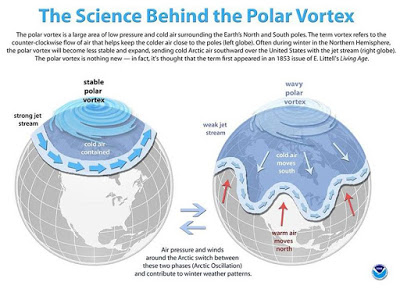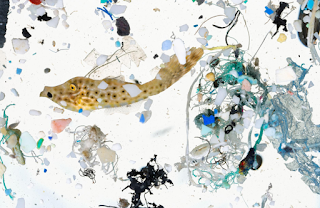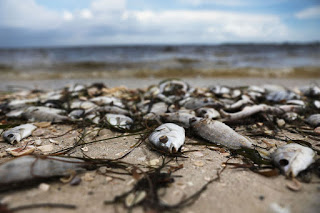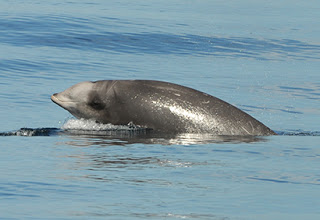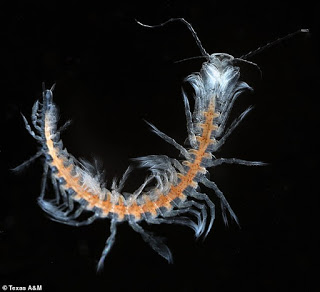“Extreme freezing temperatures, polar vortex and global warming, Another Sea World orca dies, New species discovered, Plankton and plastic share space, Dwindling Starfish and more …
Editorial Note: Forbes, CNN, Fortune, and many others concur. Cold temperatures actually support global warming science.
The country is freezing in an unprecedented fashion, and global warming is to blame. Sound crazy? The cold snap that North America is experiencing east of the rocky mountains, with temperatures at Arctic-like levels, is real, but it’s only part of the story. Simultaneously, there are record warm temperatures happening in other parts of the world, from Australia to the actual Arctic. While a small but vocal minority of people might use the faulty logic of, “it’s cold where I am, therefore global warming isn’t real,” even schoolchildren know that weather isn’t climate. But these extreme cold snaps have gotten more severe in recent years, due to a combination of global warming and a phenomenon you’ve likely heard of: the polar vortex.
———————————————–
Converging currents at the surface of the ocean create some of the best places to find life. It is where plankton float and hungry fish follow. It’s also there that researchers are finding a new, and now ubiquitous, ocean resident—plastic. “To me, it’s a little shocking how much is in relatively small samples,” says photographer and National Geographic Explorer David Liittschwager. Last July, Liittschwager accompanied scientists sampling waters off the coasts of Hawaii, where currents converge to form slicks full of plankton. Using nets, they scooped 400 cubic meters of surface water into simple five-gallon buckets and hauled it back to a lab on Hawaii’s Big Island.
———————————————–
Gov. Ron DeSantis’ environmental budget will include a “historic commitment” to water resources and Everglades restoration, including projects with Everglades, water quality and a “historic amount of money” for red tide research, he said Tuesday. At a press conference after Tuesday’s Cabinet meeting, DeSantis alluded to announcements planned for later in the afternoon in Naples and in Fort Lauderdale. “We meant what we said, and we think this is the time for us to tackle these problems that have been persistent in our state.”
4. Why Beaked Whales Return To Navy Sonar Range Despite Frequent Disturbance
Using data from underwater robots, scientists have discovered that beaked whales prefer to feed within parts of a Navy sonar test range off Southern California that have dense patches of deep-sea squid. Their findings, published January 29 in the Journal of Applied Ecology, show that beaked whales need these prey hotspots to survive and that similar patches do not exist in nearby “sonar-free” areas. For decades, the U.S. Navy has used high-powered sonar during anti-submarine training and testing exercises in various ocean habitats, including the San Nicolas Basin off Southern California.
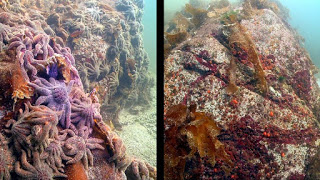 Once a common delight of every beachcomber, sunflower starfish — the large, multi-armed starfish sometimes seen underwater at the nearshore — are imperiled by disease and ocean warming along the West Coast. The devastation occurred over just a few years and even affected starfish in deeper water, according to research co-led by the University of California, Davis, and Cornell University published in the journal Science Advances.
Once a common delight of every beachcomber, sunflower starfish — the large, multi-armed starfish sometimes seen underwater at the nearshore — are imperiled by disease and ocean warming along the West Coast. The devastation occurred over just a few years and even affected starfish in deeper water, according to research co-led by the University of California, Davis, and Cornell University published in the journal Science Advances.6. Sea World Orlando Orca Whale Kayla Dies After Illness
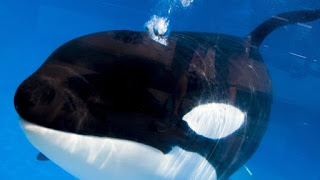 A 30-year-old orca whale has died after a brief illness at SeaWorld Orlando, the park announced on Monday. Kayla, who was born in captivity in Texas in 1988, was one of 20 whales still housed at the company’s parks. SeaWorld said Kayla’s condition had deteriorated on Sunday after she showed signs of illness on Saturday. “Although animal care specialists and veterinarians devoted around the clock attention to Kayla, she did not survive,” it said. “While today is a difficult day for all of us at SeaWorld, Kayla inspired generations of guests and employees to care and learn more about this amazing species.”
A 30-year-old orca whale has died after a brief illness at SeaWorld Orlando, the park announced on Monday. Kayla, who was born in captivity in Texas in 1988, was one of 20 whales still housed at the company’s parks. SeaWorld said Kayla’s condition had deteriorated on Sunday after she showed signs of illness on Saturday. “Although animal care specialists and veterinarians devoted around the clock attention to Kayla, she did not survive,” it said. “While today is a difficult day for all of us at SeaWorld, Kayla inspired generations of guests and employees to care and learn more about this amazing species.”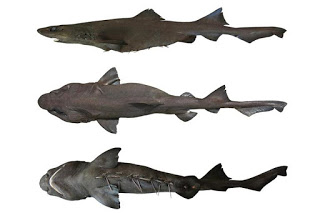 Another week, another new shark species! While many can believe that scientists find new species in the ocean, swimming around freely… that isn’t always the case. In fact, it is rarely the case. The place where most researchers find new species is in fish markets.The discovery of this shark goes back a little more than a decade now. A never-before-seen shark species was brought to the fishing harbor in Kochi (also known as Cochin), a city in southwest India’s coastal Kerala state. The fishermen who brought in this odd-looking species were fishing for sharks of economic importance from the deep-sea in the Indian Ocean.
Another week, another new shark species! While many can believe that scientists find new species in the ocean, swimming around freely… that isn’t always the case. In fact, it is rarely the case. The place where most researchers find new species is in fish markets.The discovery of this shark goes back a little more than a decade now. A never-before-seen shark species was brought to the fishing harbor in Kochi (also known as Cochin), a city in southwest India’s coastal Kerala state. The fishermen who brought in this odd-looking species were fishing for sharks of economic importance from the deep-sea in the Indian Ocean. Scientists have unearthed a brand new species of cave-dwelling life. Experts from Texas A&M University, Galveston, participated in a 10-day research trip to the Turks and Caicos Islands, where they discovered the ‘swimming centipede’. Lasionectes, as it has been called, is a previously-unknown form of crustacean from the Remipede family and further expands the scope of ocean life. It comes at a time when many saline-rich caves in the Caribbean are in danger of pollution or destruction. ‘We collected what we believe is a new remipede species, likely related to those found in the Yucatan Peninsula of Mexico,’ says professor Tom Iliffe, who co-led the investigation. ‘Other new species of cave and marine life will likely be found once further examination is complete.’

